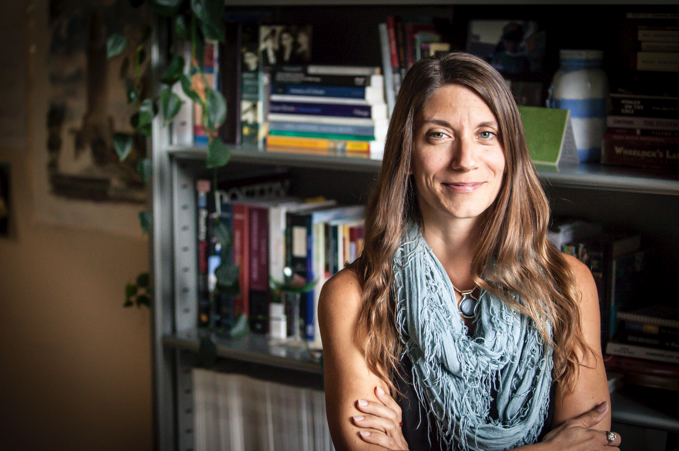Poem of the Week | June 10, 2019

Lisa Fay Coutley “Oubliette”
This week we are delighted to present “Oubliette,” a new poem by Lisa Fay Coutley.
Lisa Fay Coutley is the author of tether (Black Lawrence Press, forthcoming 2020), Errata (Southern Illinois University Press, 2015), winner of the Crab Orchard Series in Poetry Open Competition Award, and In the Carnival of Breathing (Black Lawrence Press, 2011), winner of the Black River Chapbook Competition. Her recent prose and poetry appears/is forthcoming in AGNI, Brevity, Black Warrior Review, Narrative, Pleiades, and The Los Angeles Review. She is a 2013 NEA Fellow and an Assistant Professor of Poetry & CNF in the Writer’s Workshop at the University of Nebraska at Omaha. Her website is: http://lisafaycoutley.com
Oubliette
Father said the more love the more
work & worry. Don’t tell me again
how another woman would have
known. Some secrets sit so still
at the back of your knee. Hall
leads to hallway. Ask me why
light can pour warm through a cold bay
window while water under sun is dark
as a closed door. A man’s hand
erases a girl’s thigh. The trees start starving
themselves into everyone’s favorite color.
Her darkest room digs itself
below her throne. The body knows no
wrong move. The more love, the more.
Author’s Note
“Oubliette” was the first piece in a poem exchange with a friend (30 poems in 30 days responding to each other’s previous poem). I spent most of last year writing essays, and for a while I had been approaching some difficult content about fragmented memories and the fragmented self that results and what it means to lock parts of yourself away from/inside yourself. The essay had stalled, but those images weren’t letting go. So I did what I do sometimes when I’m frustrated trying to kickstart the poetry gears after a prose stint, I gave myself a small container (the sonnet) and let the images lead me to the oubliette, which—as a terrifying place to be forgotten and from the Latin oblivisci: to forget—was perfect. I let some of the images from the stalled essay mingle with some of what I’d read about oubliettes, added some back-talk, which comes naturally to me, and refused to let a man have the final say in the poem.
SEE THE ISSUE
SUGGESTED CONTENT

Poem of the Week
Apr 15 2024
“Love Poem for Lois” by Regan Green
“Love Poem for Lois” by Regan Green is our Poem of the Week. Regan Green grew up in Columbia, Tennessee, and now lives in Baltimore. She is a junior lecturer… read more

Poem of the Week
Apr 08 2024
“Gray” by Melissa Ginsburg
“Gray” by Melissa Ginsburg is our Poem of the Week. Melissa Ginsburg is the author of the poetry collections Doll Apollo (winner of the Mississippi Institute of Arts and Letters… read more

Poem of the Week
Apr 01 2024
“Pharmacy Museum Tour Guide, New Orleans” by Andy Young
“Pharmacy Museum Tour Guide, New Orleans” by Andy Young is our Poem of the Week. Andy Young’s second full-length collection, Museum of the Soon to Depart, is forthcoming from Carnegie… read more

